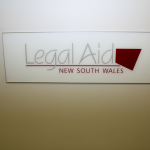How Can I Get a Pro Bono Lawyer in New South Wales?

The Law Council of Australia warned in July that legal aid funding is at “breaking point”, following a high-profile murder trial in NSW having to be postponed because of the deplorably low pay rates that simply weren’t attracting barristers that could handle such a case.
These criticisms over the lack of federal government funding allocated to legal aid are nothing new. And what it means is that the Legal Aid NSW criteria applying to cases it takes on have grown increasingly restrictive over the last decade.
The Law Council of Australia warned in July of 2020 that legal aid funding is at “breaking point”, following a high-profile murder trial in NSW having to be postponed because of the deplorably low pay rates that simply weren’t attracting barristers that could handle such a case.
The recent Final Report of the Independent Review of the National Legal Assistance Partnership reveals the devastating impact of a decade-long lack of funding to the legal aid sector in Australia.
The concerns about insufficient federal government funding for legal aid are long-standing. As a result, over the past decade, the criteria for cases accepted by Legal Aid NSW have become progressively more restrictive.
Legal aid is an organisation that offers legal services to individuals who cannot afford a private lawyer. Applicants must usually pass a means test and undergo an assessment of their case’s merits. Those who are unable to secure assistance from legal aid and cannot afford a lawyer are left in what’s referred to as the justice gap. And the number of these people are growing every year.
But, for those who do fall between the cracks in the NSW legal system, there is a third option. And that’s the pro bono scheme. Pro bono work involves lawyers providing their services free of charge or at dramatically reduced rates. And it’s an essential part of the Australian legal system.
For disadvantaged people seeking pro bono legal assistance there are three main avenues they can take:
- court-based schemes;
- programs carried out by professional legal bodies; and
- community legal centers.
Gratis from the courts
Most full-time Local Courts provide a chamber service, which involves a registrar or deputy registrar who can provide assistance to members of the public with procedures and applications. However, these registrars don’t provide legal services or representations in court.
For individuals who are deciding to or have been in a position where they have had to self-represent before a magistrate, they can have the registrar explain the court process to them. And this service is available via appointment.
A number of courts run their own pro bono schemes. Under the provisions of regulation 7.36 of the Uniform Civil Procedure Rules 2005 (NSW), if a court believes it’s in the “interests of the administration of justice”, a litigant can be referred to a Pro Bono Panel barrister or solicitor for legal assistance.
When deciding if it is in the “interests of the administration of justice” to refer a litigant, the Court considers the following factors:
- the means of the litigant;
- the capacity of the litigant to obtain legal assistance outside the scheme;
- the nature and complexity of the proceedings; and
- any other matter that the court considers appropriate.
Courts which run their own pro bono schemes include the NSW Supreme Court Legal Service Assistance Scheme, the NSW District Court Scheme, as well as the Federal Court Legal Assistance Scheme and one that applies to the Federal Circuit Court.
Pro bono solicitors
The Law Society of NSW represents the interests of the almost 33,000 solicitors in this state. And the professional association operates its own Pro Bono Scheme. The society can put eligible people in contact with law firms that are willing to provide their services for free or at reduced rates.
To be eligible for these services an applicant must:
- have been refused by legal Aid;
- have a matter covered by their scheme;
- satisfy the means test applied by the scheme; and
- have a matter that has merit and/or reasonable prospects of success.
However, it is important to note that the Law Society’s Pro Bono Scheme does not cover all types of matters. They matters the scheme covers are listed on their webpage. Those interested in their service must complete and submit the application for pro bono referral form.
Barristers on the house
The NSW Bar Association runs its own Legal Assistance Referral Scheme, which tries to meet an individual’s request for legal support with a barrister or mediator best suited for their particular case.
The scheme is for people whose household income is below $1,000 a week before tax. To apply to this scheme applicant must complete and submit the application form. From there the association’s board considers the matter, and if successful, the case is matched with a barrister or mediator.
Another initiative run by the Bar Association is the Duty Barrister Scheme. This involves barristers assigned to particular Local Courts to help those who can’t afford a lawyer, have been refused assistance by Legal Aid, and have a matter before the court on the day.
The NSW Bar Association outlines that its “schemes reflect the strongly held view of the bar that a person’s rights and access to justice should not be diminished because they have little or no money.”
Representing the marginalised
In NSW, there are more than 40 community legal centres, which play a vital role in supporting those facing economic hardship and discrimination. These independent, non-governmental organsations offer legal services at no cost.
Some community legal centres provide general services, such as the Redfern Legal Centre and the Inner City Legal Centre, while others specialise in specific areas, like the Women’s Legal Service NSW and Justice Connect.
Bringing about social change
The Public Interest Advocacy Centre (PIAC) is a community legal centre that focuses on cases with a social justice or human rights angle, aiming not only for a positive outcome for the litigant but also for broader systemic change.
When deciding whether to take on a case, PIAC considers factors such as whether the issue causes significant harm, if it will benefit an underrepresented or disadvantaged group, its likelihood of success, and its potential for producing meaningful impact.
PIAC specifically addresses areas such as asylum seeker health rights, discrimination, policing, Aboriginal and Torres Strait Islander justice, homelessness, and advocating for a fairer National Disability Insurance Scheme.
First Nations justice
The Aboriginal Legal Services (ALS) NSW/ACT first began operating in 1970, out of a shopfront in Redfern, providing free legal assistance to Aboriginal people. It was at a time when local indigenous people were subjected to a 9:30pm curfew, as well as arbitrary police detention.
The ALS was in response to injustices stemming from an imposed legal system. And fifty years later, the legal service now provides assistance with criminal matters, childcare and protection law, the family courts and tenancy matters.
Too little, too late
Legal Aid NSW also provides free services, but its ability to assist has been limited by chronic underfunding. In 2019, however, NSW Attorney General Mark Speakman announced an $88 million funding boost to be delivered over the next four years. As part of this increase, the hourly rate for lawyers, which had been stagnant for 12 years, is set to rise by $45 over the coming years. The move came after many lawyers had threatened to remove their services if wages continued to stagnate.
Despite this funding injection, NSW Bar Association president Tim Game SC expressed concerns that the staggered, one-off investment would not be enough to close the justice gap. In fact, the additional funding represents only about a third of what Legal Aid NSW has stated is necessary to meet the urgent demand for services.
Going to Court for a Criminal Offence?
If you are going to court for a criminal offence, call Sydney Criminal Lawyers anytime on (02) 9261 8881 to arrange a free first appointment with an experienced defence lawyer who will advise you of your options and the best way forward.








